Street Child World Cup
The Street Child World Cup is a global movement for street children to receive the protection and opportunities that all children are entitled to. Ahead of each FIFA World Cup, they unite street children from across five continents to play football and unite in a unique international conference. Together through football, art and campaigning their aim is to challenge the negative perceptions and treatment of street children around the world.
History
The first Street Child World Cup was held in Durban, South Africa, in March 2010[1][2][3] The event brought together teams of street children and former street children from Brazil, South Africa, Nicaragua, Ukraine, India, the Philippines and Tanzania. The participants were between 14 and 16 years old at the time of the event and all had experience of living full-time on the streets without family. Each squad of 9 players included 3 girls. A representative team of young people from Manchester, UK, also took part in the tournament. This team was mentored by UK children's TV presenter Andy Akinwolere, and his journey was covered on the BBC Children's TV show, Blue Peter.
The Street Child World Cup was initiated by UK human rights charity the Amos Trust.[4] It was hosted in Durban by Umthombo Street Children[5] and the Durban University of Technology.
Each team was brought by a street child organisation based in the contributing country: Action for Brazil's Children; Casa Alianza Nicaragua; Depaul Kharkiv (Ukraine); Youth Football Club Rurka Kalan and the Khalsa Football Academy (India); Caretakers of the Environment Tanzania, through Tanzania Street Children Sports Academy (TSC Sports Academy) A network of charities worked together to bring a team from the Philippines. The UK team was brought by the M13 Youth Project.
Between 12 and 22 March 2010, the participating children competed in a 7-a-side football tournament, created artworks which were subsequently exhibited in the Durban Art Gallery and at the Foundling Museum, London,[6] and took part in a youth participation conference. The outcomes of the conference were published in November 2010 as 'The Durban Declaration'.[7] This emphasises street children's right to be heard, right to a home, right to protection from violence, and right to access health and education. Girls participating in the Street Child World Cup produced a Street Girl's Manifesto which was published as part of Plan International's 2010 'Because I am a Girl' report on the state of the world's girls.[8]
The artwork created at the event was facilitated by Momentum Arts, a Cambridge-based arts inclusion charity. Specialised coaching was provided by Coaching for Hope.
The main overall sponsors of the event were Deloitte, and the event was known as the Deloitte Street Child World Cup.
The football tournament was won by India,[9] who beat Tanzania in the finals. The Shield was won by the Philippines team.[10] Ukraine won the Fair Play award.
The Philippine team will be managed by the Fairplay For All Foundation.
On March 27, 2014, a 10-day tournament and conference will kick off in Rio de Janeiro, Brazil. David Beckham: “I look forward to Brazil in 2014 when street children from around the world will play football and represent the millions of children who still live or work on our streets.“ At least 16 countries will take part represented by street child organisations committed to the rights of street children. This list so far includes Brazil, Argentina, Columbia, USA, Ukraine, Indonesia, India, Pakistan, Philippines, Burundi, South Africa, Sierre Leone, Kenya, Tanzania, Egypt and Mauritius.
Participating Nations
Below is a list of all the participating nations in all editions.
 Argentina
Argentina Brazil
Brazil Burundi
Burundi Egypt
Egypt Great Britain
Great Britain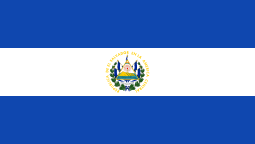 El Salvador
El Salvador Indonesia
Indonesia India
India Kenya
Kenya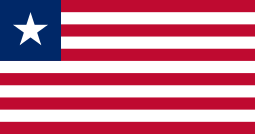 Liberia
Liberia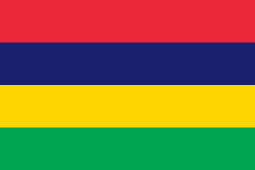 Mauritius
Mauritius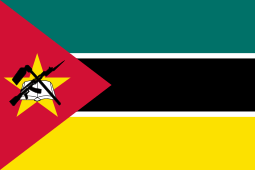 Mozambique
Mozambique Philippines
Philippines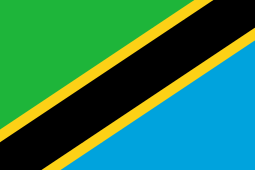 Tanzania
Tanzania South Africa
South Africa Nicaragua
Nicaragua Pakistan
Pakistan United States
United States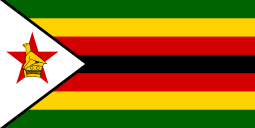 Zimbabwe
Zimbabwe
Results
Until the 2014 edition, teams were composed of both boys and girls. Starting on the 2014 Street Child World Cup edition, there was a separate tournament for boys and girls.
Boys
| Year | Host | Winners | Score | Runners-up | Third place | Score | Fourth place | Number of teams | |||
|---|---|---|---|---|---|---|---|---|---|---|---|
| 2014 | Tanzania |
3–1 | Burundi |
Pakistan |
1–1 (3–2p) |
United States |
15 | ||||
Girls
| Year | Host | Winners | Score | Runners-up | Third place | Score | Fourth place | Number of teams | |||
|---|---|---|---|---|---|---|---|---|---|---|---|
| 2014 | Brazil |
1–0 | Philippines |
El Salvador |
1–1 (2–1p) |
Mozambique |
9 | ||||
References
- ↑ SHARON HENDRY; in South Africa (2010-03-31). "Homeless children unite for Street Child World Cup | The Sun |Features". London: The Sun. Retrieved 2012-05-22.
- ↑ Fihlani, Pumza (2010-03-15). "Street children aim for World Cup victory". BBC News. Retrieved 2012-05-22.
- ↑ Family (2010-02-19). "Simon Mayo: Soul music and the Street Child World Cup". London: Telegraph. Retrieved 2012-05-22.
- ↑ "amos trust". amos trust. Retrieved 2012-05-22.
- ↑ Lawrence Jones Design, US-UK, larryljonesdesign.com. "Umthombo Street Children - the Voice from the Streets". Umthombo.org. Retrieved 2012-05-22.
- ↑ "Events". Foundling Museum. 2012-05-11. Retrieved 2012-05-22.
- ↑ "Violence Study - STREET CHILDREN: The Durban Declaration - a call to action from the Street Child World Cup". CRIN. 2010-11-25. Retrieved 2012-05-22.
- ↑ "Because I am a Girl: Digital and Urban Frontiers 2010 - Because I am a Girl - Plan". Plan-international.org. Retrieved 2012-05-22.
- ↑ "India win Street Child World Cup in South Africa". BBC News. 2010-03-22. Retrieved 2012-05-22.
- ↑ "RP 'miracle' in world football tilt - INQUIRER.net, Philippine News for Filipinos". Sports.inquirer.net. 2010-03-29. Retrieved 2012-05-22.